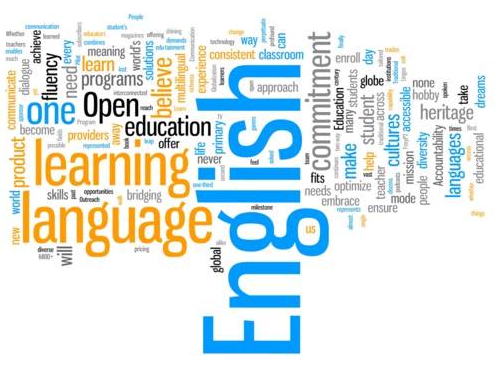(单词翻译:单击)

INDIA has about a billion people and a dozen major languages of its own. One language, and only one, is understood-by an elite-across the country: that of the foreigners who ruled it for less than 200 years and left 52 years ago. After 1947, English had to share its official status, with north India's Hindi, and was due to lose it in 1965. It did not happen: southern India said no.
印度有约十亿人口和十几种主要的本国语言。然而在全国范围内,人们都能理解的语言仅有一种:那些统治了印度将近二百年并于五十二年前离开该国的外国人讲的语言。1947年以后,英语不得不与印度北部的印地语共有官方语言地位,并将于1965年失去其地位。事实并非如此,南部印度不同意此举。
Today, India. Tomorrow, unofficially, the world. That is well under way; at first, because the British not only built a global empire but settled America, and now because the world (and notably America) has acquired its first truly global-and interactive-medium, the Internet.
今天,印度如此;明天,世界跟随(非正式地)。这一进程正大行其势。首先,英国不仅建立了一个世界性的帝国而且移民建立了美国。今天,尤以美国为甚的世界掌握了第一个真正意义上的世界性(并具互动性)的媒介——互联网。
On the estimates of David Crystal, a British expert, some 350m people speak English as their first language. Maybe 250m-350m do or can use it as a second language; in ex-colonial countries, notably, or in English-majority ones, like 30m recent immigrants to the United States, or Canada's 6m francophone Quebeckers. And elsewhere? That is a heroic guess: 100m-1 billion is Mr Crystal's, depending how you define “can”. Let us be bold: in all, 20-25% of earth's 6 billion people can use English; not the English of England, let alone of Dr Johnson, but English.
英国专家David Crystal估计,大约有350m人把英语作为他们的第一语言。或许有250m-350m人用或者能用英语作为第二语言。特别是在前殖民地国家;或是英国人为主的国家,像30m的美国新移民;或者是加拿大的6m讲法语的魁北克人。还有其他地方吗?Mr Crystal有个大胆的猜想,有100m-1b人,这个数字取决于怎样定义“能”。 让我们大胆一点,全球6b人口中总共有20%-25%的人会用英语,这不是英国英语,更不是约翰逊博士的英语。
That number is soaring as each year brings new pupils to school and carries off monolingual oldies-and now as the Internet spreads. And the process is self-reinforcing. As business spreads across frontiers, the company that wants to move its executives around, and to promote the best of them, regardless of nationality, encourages the use of English. So the executive who wants to be in the frame, or to move to another employer, learns to use it. English has long dominated learned journals: German, Russian or French (depending on the field) may be useful to their expert readers, but English is essential. So, if you want your own work published-and widely read by your peers-then English is the language of choice.
随着每年的新生入学,单一语言老人离世,以及现在互联网的普及,这一数据正在飙升。这是一个自我增强的过程。由于商业跨越国界,各公司不计国籍,各处调遣其主管们,以期提升佼佼者;这就鼓励了英语的运用。因此希望成为中心人物或者跳槽的主管就学用英语。英语早已占据了学术期刊;领域的不同,德语、俄语或法语都可能会对其专家读者有所帮助,但英语必不可少。因此你若要你的作品出版并被同行广泛阅读,英语是不二之选。
The growth of the cinema, and still more so of television, has spread the dominant language. Foreign movies or sitcoms may be dubbed into major languages, but for smaller audiences they are usually subtitled. Result: a Dutch or Danish or even Arab family has an audio-visual learning aid in its living-room, and usually the language spoken on-screen is English.
上映的越来越多的电影以及比之更甚的电视,传播了这一主导语言。外来电影和情景喜剧可配音成本地语,但为了较少一部分观众,电影经常会被配上字幕。结果是,一个荷兰或丹麦甚至是阿拉伯家庭在起居室里有个视听学习辅助设备,屏幕上说的通常是英语!
The birth of the computer and its American operating systems gave English a nudge ahead; that of the Internet has given it a huge push. Any web-linked household today has a library of information available at the click of a mouse. And, unlike the books on its own shelves or in the public library, maybe four-fifths is written in English. That proportion may lessen, as more non-English sites spring up. But English will surely dominate.
如果说计算机及其美国的操作系统的诞生轻推了英语前进,那么互联网的诞生就是给了它巨大的推动。今天任何联网的家庭鼠标动下就能拥有一个信息图书馆。不像自己书架上或者公共图书馆里的书,这里可能五分之四的是英文。
The web of course works both ways. An American has far better access today than ever before to texts in German or Polish or Gaelic. But the average American has no great incentive to profit from it. That is not true the other way round. The web may even save some mini-languages. But the big winner will be English.
毫无疑问,网络是把双刃剑。今天美国人比以往任何时候都能好的多地接触到德语、波兰语、盖尔语。但普通美国人对获益于网络并没有太大的动机。然而反面也是错误的。网络可能甚至拯救一些微语言,可是大赢家还是英语。


